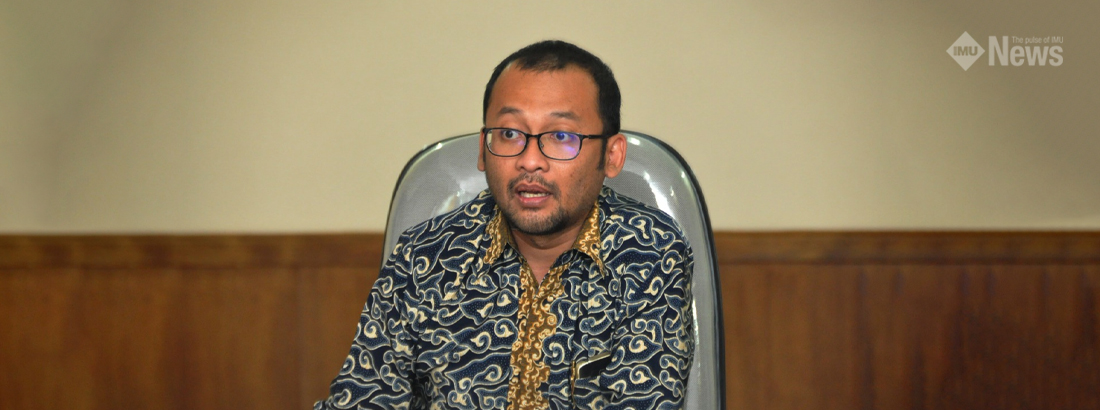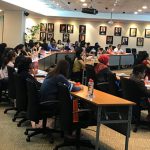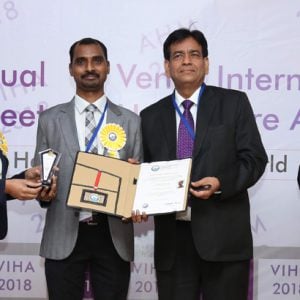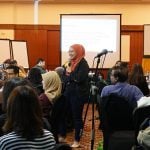Genomics is the study of the complete set of DNA (including all of its genes) in a person or other organism. Almost every cell in a person’s body contains a complete genome copy. Research in this area is relatively new, even though DNA was discovered long ago. What are the ethical issues involved in human genome research? To learn more about this, the Centre for Bioethics and Humanities (CBH) invited A/Prof Dr Teguh Haryo Sasongko from the Department of Physiology, School of Medicine, International Medical University to share his thoughts on “Ethical Issues in Human Genome Research”.
A/Pro Dr Teguh, in his webinar held on 14 July 2022, discussed the ethical implications of recent technological advances in human genome research that will impact our understanding of the values of genomic information, privacy and data sharing, and the problem of sustaining inequality of access to the technologies.
During the webinar, Dr Teguh explained the philosophical grounds and the issues in genome research such as the distinctive nature of genetic information, the identification information about a person, the genetic information that could be predictive of disease, privacy and confidentiality, psychological risks and the access and ownership to data and specimens.
According to Dr Teguh, somatic gene editing research for therapeutic purposes is generally encouraged, whereas germline gene editing research is legally banned in 40 countries due to safety issues. Bringing genomic research into a developing country enables the study of common complex disorders and encourages medical research on diseases affecting populations with lower average income and literacy levels.
Furthermore, Dr Teguh also explained that genomic studies might improve as there is an imbalance in knowledge wealth involving health research data coming from lower-income nations. He also spoke about protecting the interest of research participants, regulating international collaborative Genomic research, and protecting the interests of local researchers in low-income countries.
Some of the diverse ethical issues of data and specimen sharing were also discussed during the webinar. There are concerns regarding anonymity, data security, the implications of collecting and storing vast amounts of data and its uncertain future use, and the implications of data release for populations and for family members of participants. There is also the need to strike a proper balance between research and protection, the development of appropriate governance mechanisms, the implications for trust, consent and autonomy, commercialization, and the ethical importance of the sustainability of databases.
Dr Teguh concluded his talk with the future directions of genome research. He emphasized that the public, healthcare providers, researchers, ethics committees and research institutions need to be aware and acknowledge the participants as research partners and be innovative in the consent process.
The webinar session ended with a question-and-answer session. Muhammad Ellhaam bin Juahir was the session’s moderator, and the master of ceremony was Jaydeep Singh Mavi. Both are undergraduates from the School of Medicine, IMU.
About A/Prof Dr Teguh Haryo Sasongko
A/Prof Dr Teguh Haryo Sasongko has a longstanding teaching portfolio spanning undergraduate and postgraduate levels in diverse biomedical fields, namely medical physiology, medical biochemistry and genetics, medical and research ethics, as well as evidence-based healthcare. He is an active author, trainer and reviewer for The Cochrane Collaboration, a prominent worldwide evidence-based healthcare initiative. His research involves ethical and social issues on human/medical genetics, especially those that relate to Malaysian society. He is also one of the experts from the Malaysian Ministry of Science, Technology and Innovation who is involved in formulating an updated version of the Malaysian Research and Development Classification System (MRDCS).
For more information contact us at [email protected] or visit us at https://www.facebook.com/IMUBioethicsHumanities
Written by Dr Thulasimani Munohsamy, Lecturer, Centre for Bioethics and Humanities.









